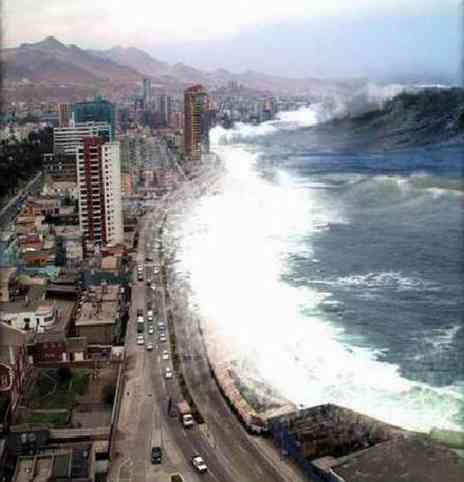
Bush embraces the endangered polar bear - and accepts the dangers of global warming
By Andrew Buncombe in Washington
Published: 28 December 2006
http://news.independent.co.uk/environment/article2108212.eceIn a landmark decision, the Bush administration has concluded that global warming is endangering the existence of the polar bear - an admission that could force the US government to act to curb the emission of greenhouse gases.
In a sharp reversal from its previous position, the Department of the Interior (DOI) has decided one of nature's most iconic creatures should be listed as "threatened" under the Endangered Species Act (ESA) because "the polar bears' habitat may literally be melting".
The decision potentially has huge implications that go beyond the survival of the polar bear: the ESA of 1973 not only requires the government to come up with a recovery plan for the bears but also prevents it from " enacting, funding, or authorising [actions which] adversely modify the animal's critical habitats".
Interior Secretary Dirk Kempthorne said that while the administration recognised the role of greenhouse gases in climate change, "the proposal to list the species as threatened cites the threat of receding sea ice [but] does not include a scientific analysis of the causes of climate change. That analysis is beyond the scope of the ESA review process".
Asked directly whether the government was not now required to act to curb emissions, he replied: "We don't have the expertise to make this analysis." He also said studies had concluded oil and gas exploration in the Arctic was not a threat to the bears - a claim contested by some enviromentalists.
But last night campaigners insisted the decision provided the bears with new, legally enforceable protection and opened the way for widespread legal action to force the Bush administration to limit emission of carbon dioxide and other warming gases.
"I think this is a watershed decision," said Kassie Siegel of the Centre for Biological Diversity, one of three groups that petitioned the DOI to act. "Even the Bush administration can no longer deny the science... There definitely is a new source of liability. For large emitters of greenhouse gases, if they do not consider the impact of those emissions on polar bears there is a provision for us and others to sue."
Andrew Wetzler of the Natural Resources Defence Council (NRDC), added: " Global warming is the single biggest threat to polar bears survival, and this will require the government to address the impacts on the polar bear." It has long been known that global warming was threatening the existence of polar bears, the world's largest bear whose total population is estimated at 22,000, located in Canada, the US, Greenland, Russia and Norway. The Swiss-based World Conservation Union has estimated the bear's numbers will plunge by 30 per cent over the next 45 years as a result of melting sea ice. In Canada's Hudson Bay area, numbers fell by an estimated 22 per cent per cent between 1997 and 2004.
Last year the Independent on Sunday reported anecdotal testimony from indigenous Inuit from Alaska and Canada who told how thinning ice and longer summers were resulting in fewer polar bears - some of which were drowning at sea as they were trapped on melting floes.
John Keogak, 47, an Inuvialuit hunter from Canada's North-West Territories, said: "The polar bear is part of our culture. They use the ice as a hunting ground for the seals. If there is no ice there is no way the bears will be able to catch the seals... here is an earlier break-up of ice, a later freeze-up. Now it's more rapid. Something is happening."
Science has supported such claims, revealing how in the Arctic, where temperatures are rising much more than elsewhere in the world, ice is decreasing in size every year. Earlier this month researchers from the Colorado-based National Centre for Atmospheric Research suggested summer ice may disappear entirely by 2040 - 40 years earlier than previous estimates.
The report's author Marika Holland, said: "We have already witnessed major losses in sea ice, but our research suggests that the decrease over the next few decades could be far more dramatic. As the ice retreats, the ocean transports more heat to the Arctic and the open water absorbs more sunlight, further accelerating the rate of warming."
Though the US is responsible for 25 per cent of the world's carbon emissions, the Bush administration has resolutely refused to enforce limits or else enter legally-binding international agreements to tackle climate change, saying such a move would damage the economy. Last month lawyers from the Environmental Protection Agency (EPA) argued before the Supreme Court that the science on climate change was uncertain. They further argued that the agency was not empowered to act to curb emissions.
Kert Davies, a climate campaigner with Greenpeace, said: "The United States has failed to lead the world in tackling global warming. With under five percent of the world's people, we generate more than 20 percent of the global warming pollution. We must start cutting greenhouse gas emissions or the polar bear will be pushed to the brink of extinction within our lifetime. "
Under the terms of the ESA, the public has 90 days to comment on the DOI proposal. "Our goal ultimately is to combine the best science available with the power of working hand-in-hand with states, tribes, foreign countries, industry, and other partners to minimise the threats to polar bears and conserve this great icon of the Arctic for future generations," said Mr Kempthorne.

No comments:
Post a Comment